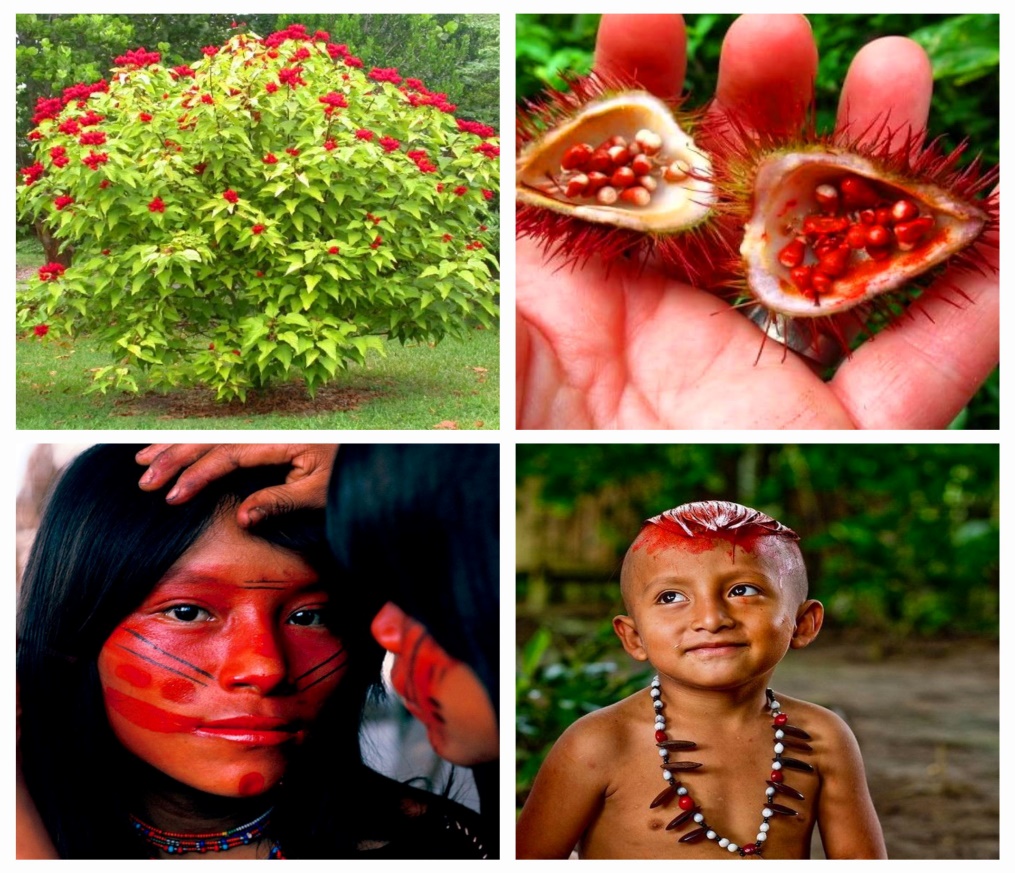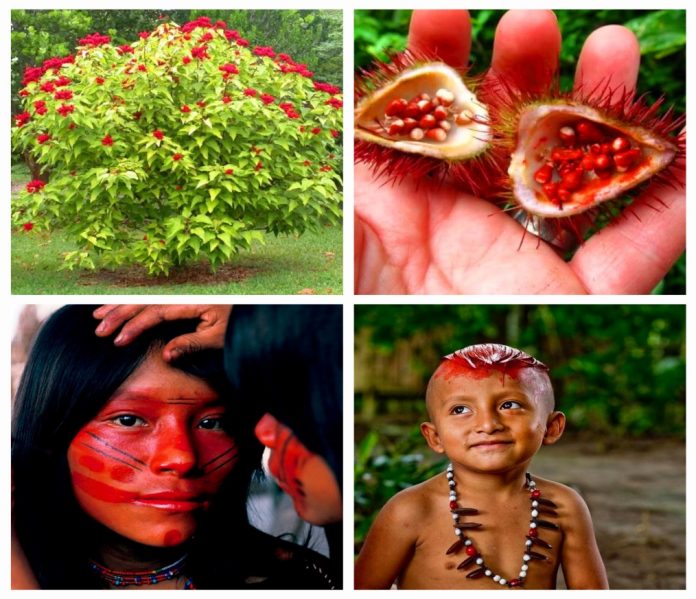Booking a magical glimpse inside Etnia Nativa
Article by Etnia Nativa call us 592 2702 and book your experience!
Every week, Etnia Nativa unveils a new episode regarding cultural heritage, focusing on native knowledge, transcendental wisdom, and the importance of defending Aruba’s true beating heart. It connects the reader with that mystical aspect of the island`s culture and traditions, encouraging all to interact with our unique environment.
This episode’s all about a tree present in the island’s gardens known by Arubans as Rucu, pronunciation in English ”Roo-koo”. Also referred to as “Annatto”, “Achiote” or “Onoto” -scientific name: Bixa Orellana L. Their seeds have been used and applied by different indigenous communities of tropical American countries for several cosmetic, decorative, and culinary applications, while studies indicate their potential use as an active ingredient in pharmaceutical products.

It is a tree species with origins in the intertropical botanical regions of America. A tree cultivated in Mexico, Central America, Colombia, Ecuador, Bolivia, the Andes of Peru, and Venezuela, it can measure up to 4 meters in height, has oval leaves, and its fruit is a capsule, which opens ovoid-touching spiny reds when ripe. It is a spectacular tree when it is loaded with fruits. Native people from our island were the first to use its seeds by macerating them into a red pigment mass used as body decorating paint; they also used it as facial makeup and hair starch, as insect repellent, and as a savory in their meals. Annatto is known as the poor man’s saffron since it has the same color as it but is not similar in flavor. Today, the seeds are heated in oil or lard to extract their dye and flavor for use in dishes and processed foods such as cheese, butter, soup, gravy, sauces, cured meats, and other consumer products. The seeds impart a subtle flavor and aroma, and a yellow-to-reddish-orange color enhances the food. To get the color out of its seeds, you have to crush them and spend a while in hot oil or boil them in water. After obtaining the desired color, we must discard the seeds since only the content is necessary for the pigment elaboration. This must be ground into a powder to obtain the desired final product from the seeds.
The crushed seeds or the oil of Annatto (Bixa orellana L.) extract is referred to as an excellent skin healer as well as a formidable anti-inflammatory and protector against herpes zoster.
The crushed Annatto leaf infusion has been reported in indigenous medicine books as an antidiarrheal, tonic, digestive, mild laxative, diuretic, pain reliever caused by inflammation of hemorrhoids, and, as I told you previously, it heals the liver. It is a rich antioxidant and liver cleanser. In some South American countries, it is recommended to boil Annatto roots and drink its water to relieve hepatitis. The tropical climate greatly favors this species; therefore, countries with this climate as Brazil, Venezuela, Nicaragua, etc. are small producers of it.
When fruits are ripening, they open in two, and this is the perfect time to collect their seeds, extract them from the husk, and let them dry in the sun for approximately 4 days. The drying process is very important so that the coloring matter can be cured. These small triangular or heart-shaped seeds are intense brick red in color, and their flavor is reminiscent of bitter clay, very light and pleasant.
So if you are interested in really getting to know the flora, fauna, geology, history, and authochonous art, as well as the true identity of the island, book a visit to Etnia Nativa, a unique native gem! Let Anthony, our acclaimed columnist, guide and lecture you regarding the most interesting and revealing stories about Aruba’s undiscovered Etnia Nativa, an adventure beyond beaches and tourist traps. Visit his magnificent dwelling that integrates natural and reused materials, bursting with culture and island heritage, and you’ll love Aruba beyond beaches!
Appointments and confirmations trough WhatsApp +297 592 2702 or etnianativa03@gmail.com




















